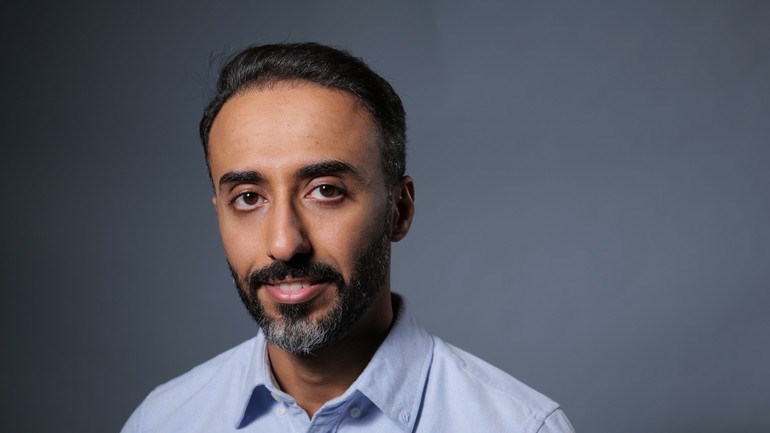We use cookies on this website. Cookies help us deliver the best experience on our website. Read about cookies.
-
- Education
- Education
- Programmes and courses
- Applications and admissions
- Tuition fees
- Scholarships
- Exchange studies at Malmö University
- Study Guidance
-
- After admission
- After admission
- Moving to Malmö
- Pre-orientation
- Arrival guide
-
- About studies at Malmö University
- About studies at Malmö University
- Why choose Malmö University
- Understanding university studies
- Connect with our students
On the page -
- Research
- Research
-
- Doctoral studies
- Doctoral studies
- Doctoral courses
-
- Doctoral schools
- Doctoral schools
- Adaptation of urban space through sustainable regeneration
- ComBine
- Culturally Empowering Education through Language and Literature
- Education, Learning and Globalisation
- Finding ways in a time of great future challenges (FinnFram)
- Swedish National Graduate School in Science and Technology Education Research
- Learning in Multicultural Societal Contexts
- Pedagogy and Vocational Skills
- Relevancing Mathematics and Science Education (RelMaS)
- Sustainable Movement Education
- The National Research School for Professionals in Social Services
- Research subjects
-
- Research centres
- Research centres
- Biofilms Research Centre for Biointerfaces
- Citizen Health
- Imagining and Co-Creating Futures
- Institute for Urban Research
- Malmö Institute for Migration Studies
- Literacy and Inclusive Teaching
- Centre for Work Life Studies
- Sustainable Digitalisation Research Centre
- Centre for Sexology and Sexuality Studies
-
- Research publications
- Research publications
- Search for research publications in Diva
- Malmö University Press
- Research events
- Participate in a research study
- Coffee Break Quiz
On the page -
- Collaboration and Innovation
- Collaboration and Innovation
-
- Levels of collaboration
- Levels of collaboration
-
- Local collaboration
- Local collaboration
- Muvah
- Regional collaboration
- National collaboration
-
- International collaboration
- International collaboration
- UNIC
- Innovation
- Collaboration with students
-
- Collaborate with researchers
- Collaborate with researchers
- Labs and facilities
- Culture collaboration
- Support Malmö University
- Alumni & Friends
On the page -
- About us
- About us
-
- Faculties and departments
- Faculties and departments
-
- Faculty of Culture and Society
- Faculty of Culture and Society
- Department of Global Political Studies
- School of Arts and Communication
- Department of Urban Studies
-
- Faculty of Education and Society
- Faculty of Education and Society
- Department of Childhood, Education and Society
- Department of Sports Sciences
- Department of Culture, Languages and Media
- Department of Natural Science, Mathematics and Society
- Department of Society, Culture and Identity
- Department of School Development and Leadership
- The Centre for Teaching and Learning (CAKL)
-
- Faculty of Technology and Society
- Faculty of Technology and Society
- Department of Computer Science and Media Technology
- Department of Materials Science and Applied Mathematics
- Faculty of Odontology
- University Dental Clinic
-
- Find and contact Malmö University
- Find and contact Malmö University
- Visit Malmö University
-
- News and press
- News and press
- Graphic manual
- Map of the buildings (Google Maps)
- Merchandise
- Supplier information and invoice management
- Whistleblowing
- We will help you with your questions
- Management and decision-making paths
-
- Malmö University's strategy 2030
- Malmö University's strategy 2030
- Sustainability
- Widened recruitment and participation
- Quality assurance work at the University
-
- Malmö Academic Choir and Orchestra
- Malmö Academic Choir and Orchestra
- Student work – video pieces
-
- Annual Academic Celebration
- Annual Academic Celebration
- Academic traditions
- Meet our new professors
- Meet our new doctors
- Honorary doctors
-
- The University in a troubled world
- The University in a troubled world
- Campus total defence
On the page
Smoking and teeth grinding may damage fixed dental prostheses

In his dissertation, Mohammed Hawthan investigated what influences the lifespan of a fixed dental prosthesis in patients with missing or damaged teeth.
How could dental crown or bridge complications be better prevented? Dentists must consider several interacting risk factors before treatment, a new dissertation finds.
Smoking and so-called bruxism, pressing or grinding teeth, can influence the survival of fixed dental prostheses, such as crowns and bridges. But preserving tooth vitality and choice of prosthesis material may improve the treatment outcomes, says Mohammed Hawthan, doctoral student at the Faculty of Odontology.
In his dissertation, 'On failures and complications of tooth-supported fixed prostheses', he investigated what factors could affect the lifespan of a fixed prosthesis.
”Many previous studies have focused on one or two risk factors, but examining multiple interacting factors can provide a better overview.”
The dissertation consists of four sub-studies: a systematic literature review and three retrospective studies conducted in databases with patient data from the University’s dental clinic in Malmö. The analysed data includes almost 1400 reconstructions (331 bridges and 1050 crowns).
”Based on our studies, it isn’t possible to identify a single risk factor as more important than any other. However, we see that the risks increase if the patient has several of the factors. We also see that follow-ups are central in improving the outcome," says Mohammed Hawthan.
How do you hope your findings would be used?
”Recognising risk factors that place the patient at a higher risk of treatment failure will allow the clinician to refine the treatment plan to optimise treatment outcomes. The importance of follow-up visits should be explained to all patients, and clinicians should also show patients how to clean their teeth after receiving fixed constructions.”
Text: Anna Dahlbeck
More about the dissertation
Find out more about the dissertation:
On Failures and Complication of Tooth-Supported Fixed Prostheses
Share Article